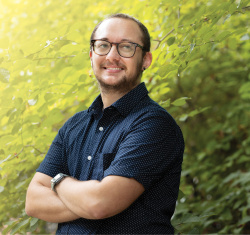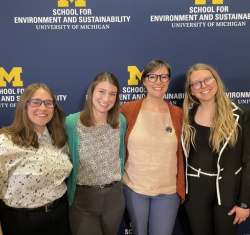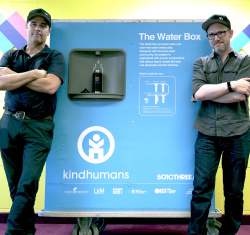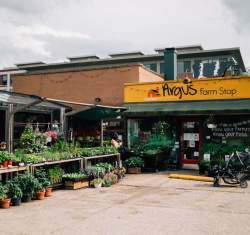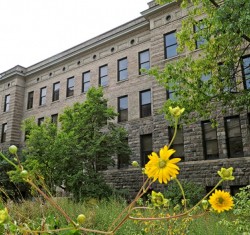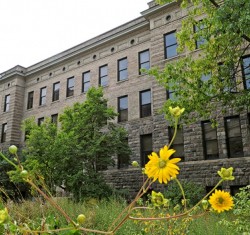
 back to all faculty
back to all faculty
Raymond De Young
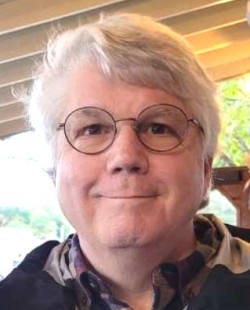
About
Raymond De Young, PhD, is a broadly trained psychologist, planner, and engineer. He is an Associate Professor of Environmental Psychology and Planning at SEAS and in the Program in the Environment (PitE), and a Faculty Associate at the Matthaei Botanical Gardens and Nichols Arboretum and at the Graham Sustainability Institute. His research focus is on the process of re-localization, a response to emerging biophysical limits and the consequences of having deeply disrupted the Earth's ecosystems. De Young applies conservation and environmental psychology principles to the challenge of helping people to envision and adopt frugal behavioral responses that support a life lived well within local resource limits. Despite what for some people is a dismal forecast, his work is decidedly hopeful. He is described as neither an optimist nor pessimist when it comes to human behavior, but rather an idealist without illusions.
His current work includes research on (1) helping people to pre-familiarize themselves with the behavioral aspects of the coming resource downshift, (2) motivating environmental stewardship using innate satisfactions and (3) using nature to restore the mental vitality needed for responding to and coping with the lean and difficult yet exciting times ahead.
Publications
- Lasoff-Santos, J., & De Young, R. (2023). Exploring the motivations, satisfactions, and well-being of agricultural intentional community residents. Journal of Agriculture, Food Systems, and Community Development, 12(2), 215–234. https://doi.org/10.5304/jafscd.2023.122.011
- De Young, R. (2019). Supporting behavioral entrepreneurs: Using the biodiversity-health relationship to help citizens self-initiate sustainability behavior. In Marselle, M., J. Stadler, H. Korn, K. Irvine and A. Bonn [Eds.] Biodiversity and Health in the Face of Climate Change. (pp. 295-313) Switzerland: Springer.
- Harbo, S. and R. De Young (2019). Community-based resource sharing: Motivations and spillover effect. In Boucher, J. and J. Heinonen [Eds.] Sustainable Consumption, Promise or Myth? Case Studies from the Field. (Ch. 6, pp. 100-120) Cambridge, UK: Cambridge Scholars Publishing.
- Landeryou, T. and R. De Young (2018). Foodloose in Washtenaw: A Foodie's Guide to Washtenaw County. Ann Arbor, MI: Michigan Publishing Service.
- Hamilton, E. M., M. L. Guckian and R. De Young (2018). Living well and living green: Participant conceptualizations of green citizenship. In W. Leal and J. Callewaert (Eds.) Handbook of Sustainability and Social Science Research. (pp. 315-334) World Sustainability Series. Switzerland: Springer.
- Guckian, M. L., E. M. Hamilton and R. De Young (2018). Cognitive mapping as participatory engagement in social science research on sustainability. In W. Leal and J. Callewaert (Eds.) Handbook of Sustainability and Social Science Research. (pp. 337-352) World Sustainability Series. Switzerland: Springer.
- Guckian, M. L., S. Harbo and R. De Young (2017). Beyond green consumerism: Uncovering the motivations of green citizenship. Michigan Journal of Sustainability, 5(1), 73-94.
- De Young, R., K. Scheuer, J. Roush and K. Kozeleski (2016). Student interest in campus community gardens: Sowing the seeds for direct engagement with sustainability. In W. Leal Filho and M. Zint (Eds.) The Contribution of Social Sciences to Sustainable Development at Universities. World Sustainability Series. (pp. 161-175) Switzerland: Springer.
- De Young, R. (2014). Some behavioral aspects of energy descent: How a biophysical psychology might help people transition through the lean times ahead. Frontiers in Psychology, 5, 1255.
- De Young, R. (2013). Transitioning to a new normal: How ecopsychology can help society prepare for the harder times ahead. Ecopsychology, 5, 237-239.
- De Young, R. (2013). Environmental psychology overview. In Ann H. Huffman & Stephanie Klein (Eds.) Green Organizations: Driving Change with IO Psychology. (Pp. 17-33) NY: Routledge.
- De Young, R. & T. Princen (2012). The Localization Reader: Adapting to the Coming Downshift. Cambridge, MA: The MIT Press.
Read more publications here.
Overview of neighborhood resilience projects:
Selected student-led resilience projects:
- 2024: Krick (2024) A2Zero Home Energy Effectiveness Toolkit.
- 2024: Woodward (2024) Regional Resilience Network: Best practices.
- 2024: Woodward (2024) Crafting a visual environment for sharing information, reDirect.org
- 2024: Woodward (2024) A2Zero Solarize Toolkit.
- 2024: Ramsey (2024) A2Zero Solarize Toolkit: Guide for Organizers.
- 2023: Woodward (2023) Nourishing Neighborhood Networks: Best practice guide.
- 2022: Woodward (2022) A2Zero Solarize Program Guide.
- 2022: Woodward (2022) No need to reinvent the wheel: The settlement house as a time-tested model for community resilience.
- 2022: Resilient Ann Arbor - StoryCorps interviews on responding to a resource descent.
- 2022: Woorward (2022) SEEing our way to solar: Using Supportive Environments for Effectiveness in program analysis, reDirect.org
- 2022: Farm stops: A new way to enhance local and regional food systems.
- 2022: Guidebook: How to Start a Farm Stop: A Pattern Language for Local Food System.
- 2022: Ypsilanti, Michigan Resilience Hub: Implementing a physical Resilience Hub.
- 2022: A Modern Settlement House Movement: The Impact of Neighborhood Centers on Climate Resilience.
- 2022: Beshouri and Cooney (2022) A2Zero Ambassador Program Report.
- 2021: A Pattern Language for neighborhood resilience.
- 2021: Developing Diverse, Accessible Environmental Education Partnerships on an Organic Farm near Ann Arbor, MI.
- 2020: Therapeutic design for healthcare environments: A practical application at St. Joseph Mercy Oakland Hospital, Pontiac, MI.
- 2020: Creating a library of workshops for enhancing neighborhood resilience.
- 2020: A framework for implementing resilience hubs in Ypsilanti, Michigan, USA.
- 2019: Enhancing knowledge sharing and collaboration among farms at healthcare facilities.
- 2019: Localizing the Mackinac Island, Michigan foodshed.
- 2018: University-community partnerships for re-skilling and resilience building.
- 2018: A Guidebook for Community Based Climate Adaptation & Psychological Resilience: A Case Study from Coastal Connecticut.
- 2018: Psychological and organizational principles of a new model for selling locally grown food.
- 2018: Foodloose: Stories and tours through Washtenaw County's local food system.
- 2018: Assessing psychological well-being outcomes from involvement in planned, agriculturally-based sustainable communities.
- 2017: Living well and living green: Participant conceptualizations of green citizenship.
- 2017: Community-based resource sharing: Motivations and spillover effects.
- 2017: The Farm at St. Joe’s: Growing healthy and resilient communities.
- 2016: Sustainable food systems at the University of Michigan.
- 2016: The Farm at St. Joe’s education program evaluation.
- 2015: Evaluating a farm-based nutrition and health educational program.
- 2014: Transition Times: YouTube/VideoScribe localization cases.
- 2012: Urgent transitions: Responding to emerging biophysical limits.
PhD, University of Michigan (Environmental Psychology and Planning)
MS, Stevens Institute of Technology (Ocean Engineering)
BS, Stevens Institute of Technology (Civil Engineering)
American Psychological Society
American Psychological Association
Environmental Design Research Association
Society for the Psychological Study of Social Issues
North American Food Systems Network (NAFSN)
Sustainable Agriculture Education Association (SAEA)




